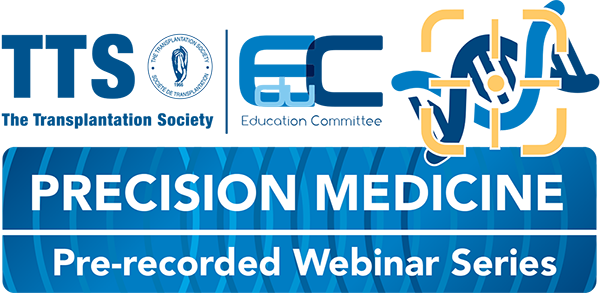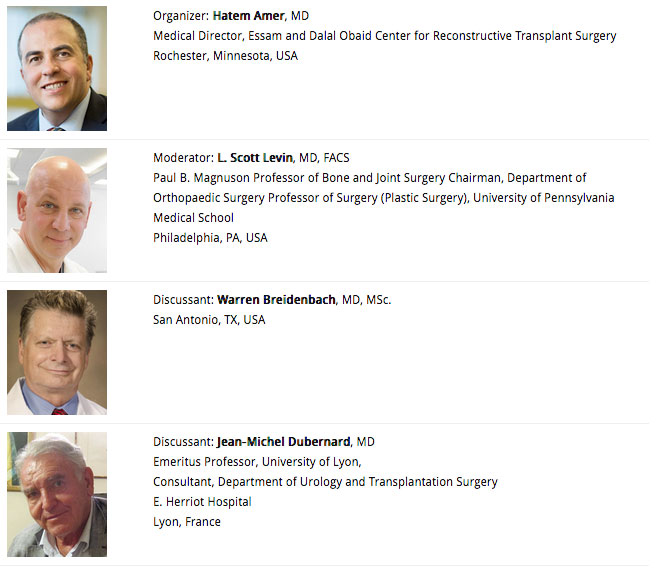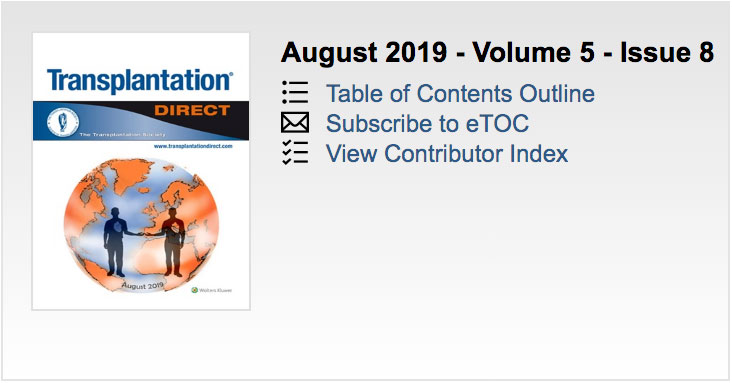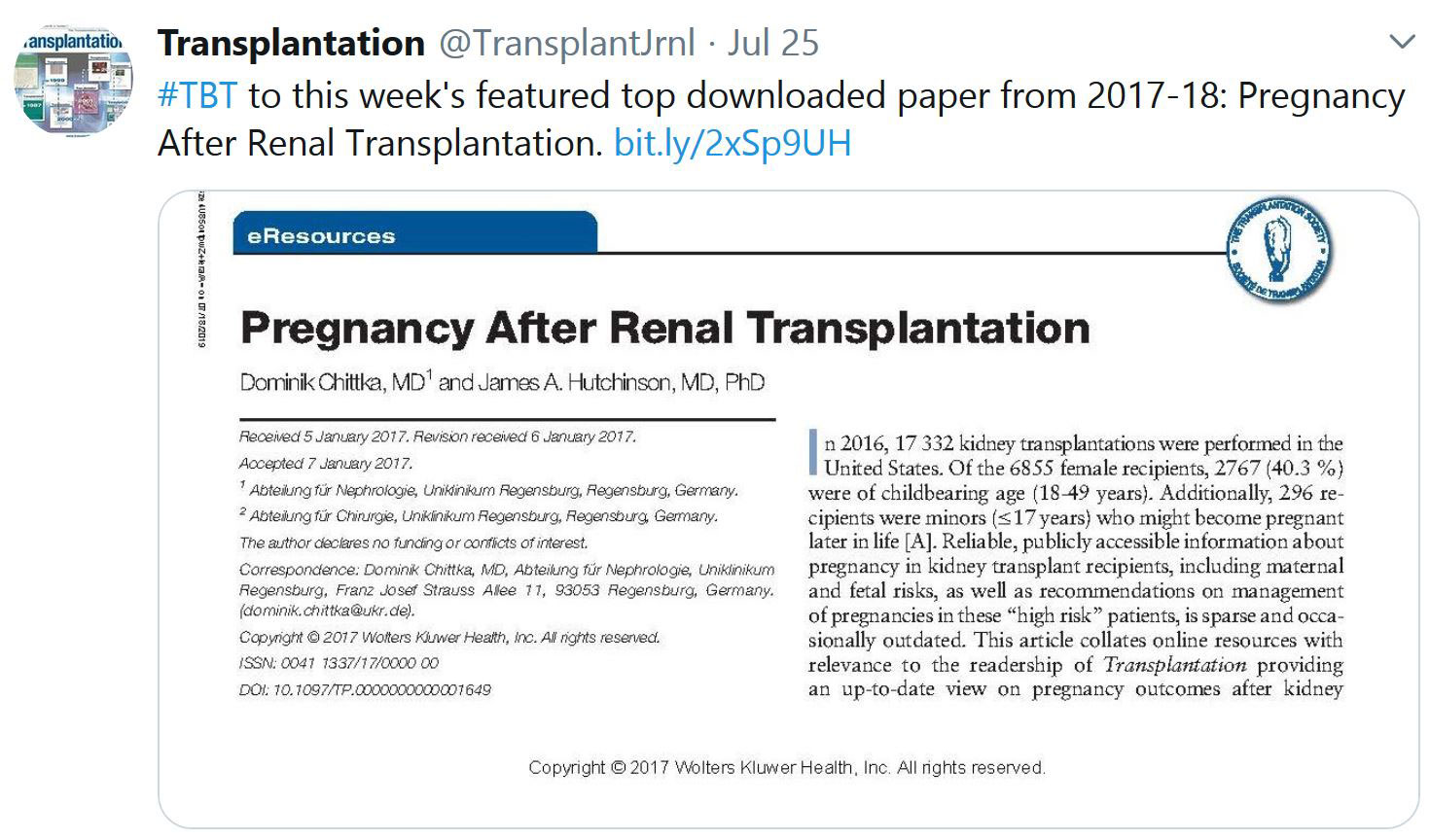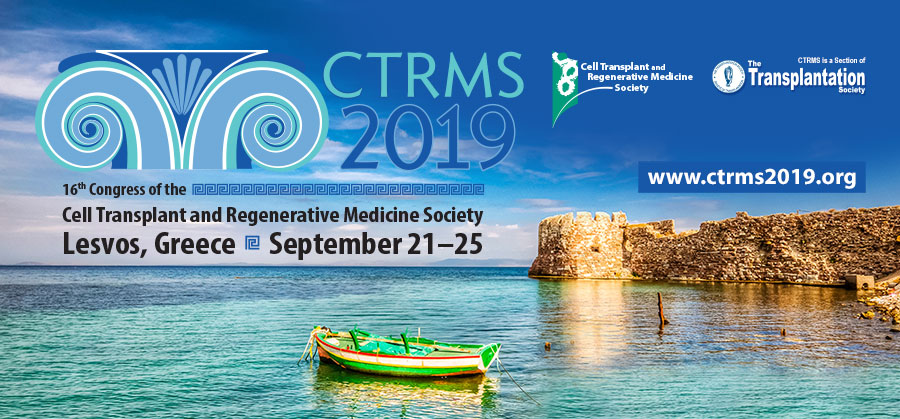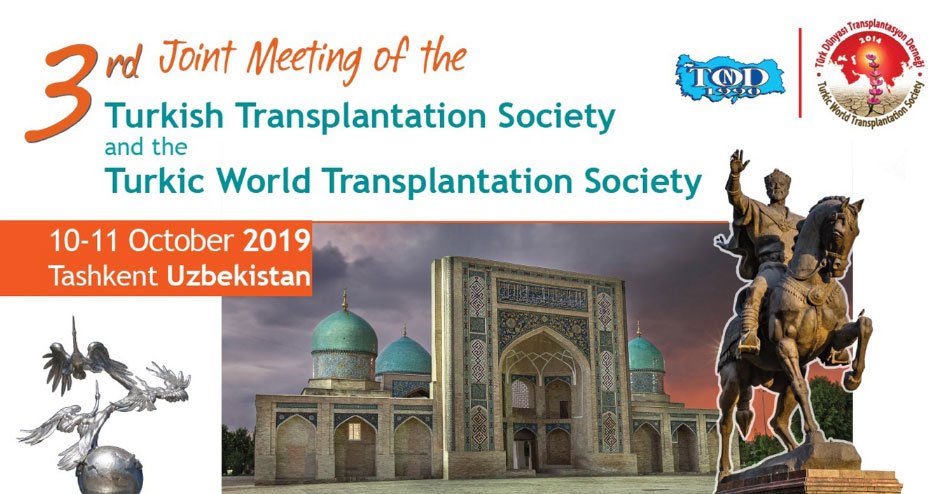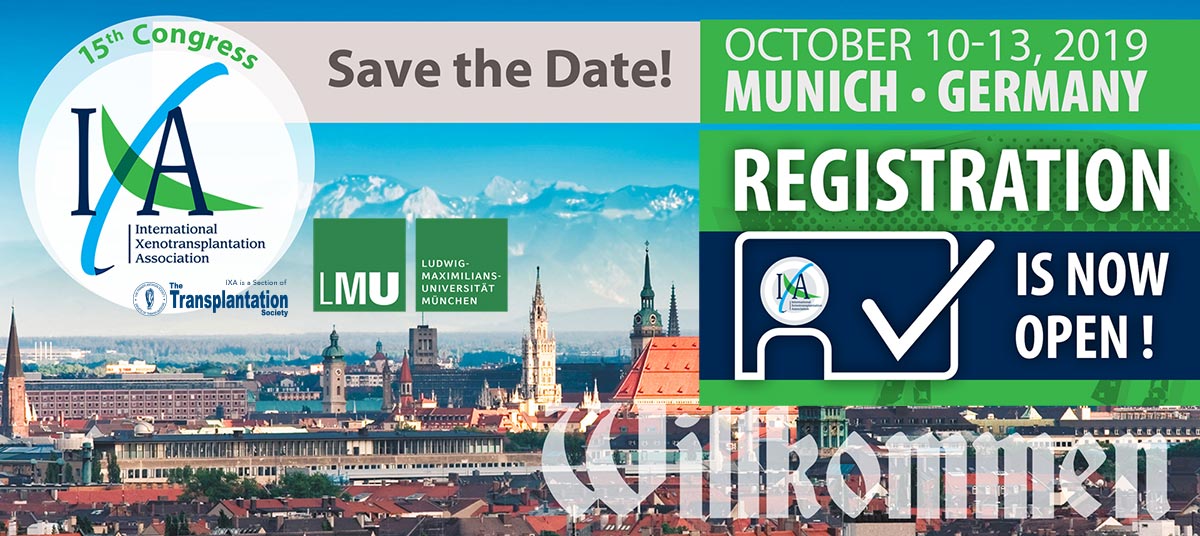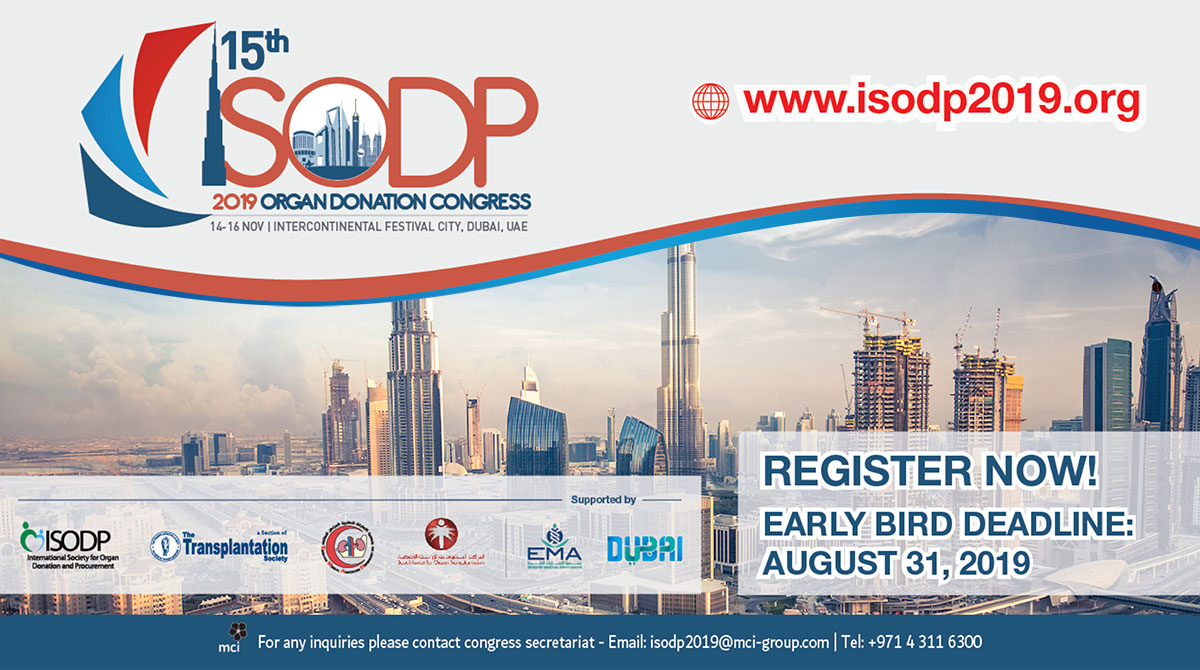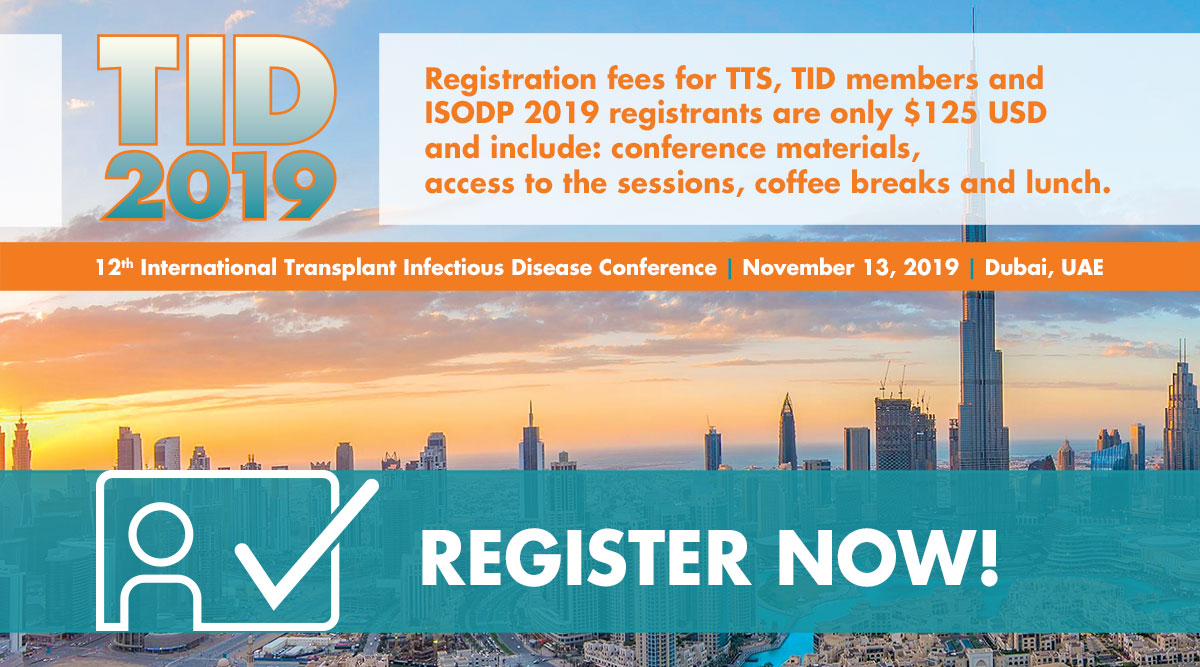
TTS EDUCATION COMMITTEE'S PRECISION MEDICINE WEBINAR SERIES - NEW RELEASE!
Today, we release the next webinar in the series. Dr. Philip Halloran presents on the Molecular Microscope and the unmet need for precision pathological diagnosis. This webinar is moderated by Dr. Jon Kobashigawa. Still available, last month's webinar presented by Maarten Naesens on System Biology and precision Transplantation Medicine. Log in and take advantage of writing questions to the moderators and presenters in your own time.
*Note, you must be logged in to participate.
CLICK HERE TO VIEWAUGUST 21 - WEBINAR ANNOUNCEMENT
TITLE: FIRST VCA (UPPER EXTREMITY)
WEDNESDAY, AUGUST 21, 2019 - 11:00 AM EDT (MONTREAL TIME)
Objectives:
This webinar will provide Participants with firsthand insight from the pioneers of the field on how the first-hand transplants came to be and their vision for the future.
The speakers will critique the reasoning for attempting UE transplants, enumerate the steps taken prior to the first clinical cases and describe how the original teams were assembled.
CLICK HERE TO SIGNUP AND LEARN MOREKDIGO HOLDS LANDMARK CONFERENCE ON KIDNEY NOMENCLATURE

(Brussels, Belgium) - Kidney Disease: Improving Global Outcomes (KDIGO) held a major conference on 27 – 29 June, in Amsterdam, to discuss improving patient-centeredness and precision of terms used by the global kidney community to describe kidney disease and kidney function in scientific articles, communicating with each other and speaking with patients.
The conference was led by Andrew Levey of Tufts Medical Center in Boston, Kai-Uwe Eckardt of the Charité in Berlin, Nijsje Dorman, Managing Editor, American Journal of Kidney Diseases and Stacy Christiansen, Managing Editor of JAMA and chair of the AMA Manual of Style Committee. In attendance were editors and associate editors from major kidney journals as well as several general and specialty clinical journals along with distinguished scientists and authors.
Dr. Levey said, “Prior to the conference we conducted a survey and commissioned a series of patient focus groups. All were asked if we could be doing better. I am really pleased that patients and experts showed a willingness to discuss more effective language for describing some aspects of kidney disease and kidney function.”
According to Dr. Eckardt, “Conference attendees shared the view that nomenclature is important in a number of ways, including communication within the medical community and with patients, perception of disease and planning of research and disease management. We are confident therefore that uniform and precise language will facilitate strategies to improve patient care and outcomes.”
Nijsje Dorman, who conducted the participant survey, emphasized that implementing changes to nomenclature in medical journals will take effort by editors and authors to ensure clarity and maintain high standards for publication.
Conference attendees discussed in plenary sessions and breakout groups a glossary of terms to describe kidney function, kidney disease and therapeutic modalities and finally agreed on a list of preferred terms.
Stacy Christiansen stated that the current edition of the style manual did not include a section on kidney nomenclature but the updated edition, to be released later this year, would include the statement, “A global organization dedicated to developing and implementing evidence-based practice guidelines in kidney disease, KDIGO, is spearheading an international effort to revise the nomenclature and to describe kidney function and disease. Their effort will focus on making terminology more patient centered and more precise with a goal of greater uniformity in medical practice, research, and public health.”
Dr. Wolfgang Winkelmayer, KDIGO Co-Chair, said, “We are proud that KDIGO organized and hosted this conference and brought together such an important group of people. This reflects our commitment to the highest scientific rigor and patient centeredness in our products and real-world applications."
The conference leaders are currently working on a report to be published in a few months along with a glossary of terms for journal authors and editors. Editorials or commentaries may appear in several journals describing this new approach to nomenclature. It is hoped that the next edition of the AMA Manual of Style will include some of the conference insights.
KDIGO is a Belgian foundation committed to developing and implementing nephrology guidelines that improve patient outcomes on a global basis.
For further information please contact KDIGO at KDIGOcommunications@kdigo.org.
JUST RELEASED - TRANSPLANTATION DIRECT - AUGUST ISSUE
The August issue of Transplantation Direct covers a variety of topics of interest to the transplantation community. In kidney transplantation, issues are explored including steroid-free immunosuppression, the relationship of eGFR to using antihypertensive medication, pre- and post-transplant weakly-reactive DSA factors affecting outcomes, predictive models of hospital post-transplant readmission, and a case of hyperacute rejection due to donor-specific Kidd blood group antibodies. Also, graft outcomes are studied in simultaneous pancreas - kidney transplant recipients with isolated pancreas failure who do, or do not, receive pancreas re-transplantation. Related to liver transplantation, we have an article from the Australia/New Zealand transplant registry on liver re-transplantation results in the contemporary era that impact transplant waitlist methods. We also have a report from the US on the use of a robotic-assisted competent jejunogastrostomy to manage recalcitrant strictures of the hepaticojejunostomy after right lobe LDLT. For organ and tissue donation coordinators in Australia, there is a study report on the need for improvement of physical examination practices. Please visit our Transplantation Direct website for full article details.
OPTN'S FALL 2019 PUBLIC COMMENT CYCLE NOW OPEN, ENDS OCT. 2

The Organ Procurement and Transplantation Network's (OPTN) fall 2019 public comment cycle started August 2nd and ends October 2nd.
Proposals will be posted on the OPTN website beginning August 2nd: https://optn.transplant.hrsa.gov/governance/public-comment/
We invite the International Society for Organ Donation and Procurement membership to submit feedback on the proposals suggested below no later than October 2nd, 2019.
- Clarification of Pre-Existing Liver Disease – Liver and Intestinal Organ Transplantation Committee
- Eliminate the Use of DSA and Region in Kidney Allocation Policy – Kidney Transplantation Committee
- Eliminate the Use of DSA and Region in Pancreas Allocation Policy – Pancreas Transplantation Committee
- Modify Data Submission Policy – Data Advisory Committee
- Modify Appointment Process for the Histocompatibility Vice Chair – Histocompatibility Committee
- Data Collection to Evaluate the Logistical Impact of Broader Distribution – Operations and Safety Committee
- Expedited Placement of Livers - Organ Procurement Organization Committee Clarification of Pre-Existing Liver Disease
Public Comment Webinars
The OPTN will be holding 3 webinars to give members unable to attend OPTN regional meetings an opportunity to learn about the proposals out for comment and ask questions of the presenters. Here is a link to more information about the webinars: https://optn.transplant.hrsa.gov/learn/professional-education/
Regional Meetings
Every regional meeting this cycle will have a dedicated liver breakout!
Here is a link to the fall meeting schedule: https://unos.org/community/regions/regional-meetings/
Call for OPTN Committee and Board Nominations
A call for nominations has gone out for OPTN Board of Director and Committee vacancies beginning July 2020. The deadline to submit nominations is September 30. If you, or anyone you know, is interested in volunteering with the OPTN you can submit a biography form at the following link: OPTN Get Involved Volunteer update
TRANSPLANTATION - HIGHLIGHTED ARTICLE
Dr. Joel Thomas Adler, Editorial Fellow, Transplantation
ASSESSING THE IMPACT OF SUBOPTIMAL DONOR CHARACTERISTICS ON MORTALITY AFTER LIVERTRANSPLANTATION: A TIME-DEPENDENT ANALYSIS COMPARING HCC WITH NON-HCC PATIENTS
Wallace D, Walker K, Charman S, et al.
Transplantation: April 2019 - Volume 103 - Issue 4 - p e89-e98
Because of relatively preserved hepatic function, patients with hepatocellular carcinoma (HCC) often receive livers of lower quality. Using a cohort of first-time liver recipients in the United Kingdom, Wallace and colleagues demonstrated that adjusted patient survival was worse for patients with HCC. In a stepwise adjusted analysis, the authors found that the vast majority of this survival difference is explained by recipient rather than donor factors; thus, they conclude that more frequent use of poorer-quality donor organs does not explain the difference.
CLICK HERE TO VIEWIN THE NEWS
Spanish scientists create human-monkey chimera in China
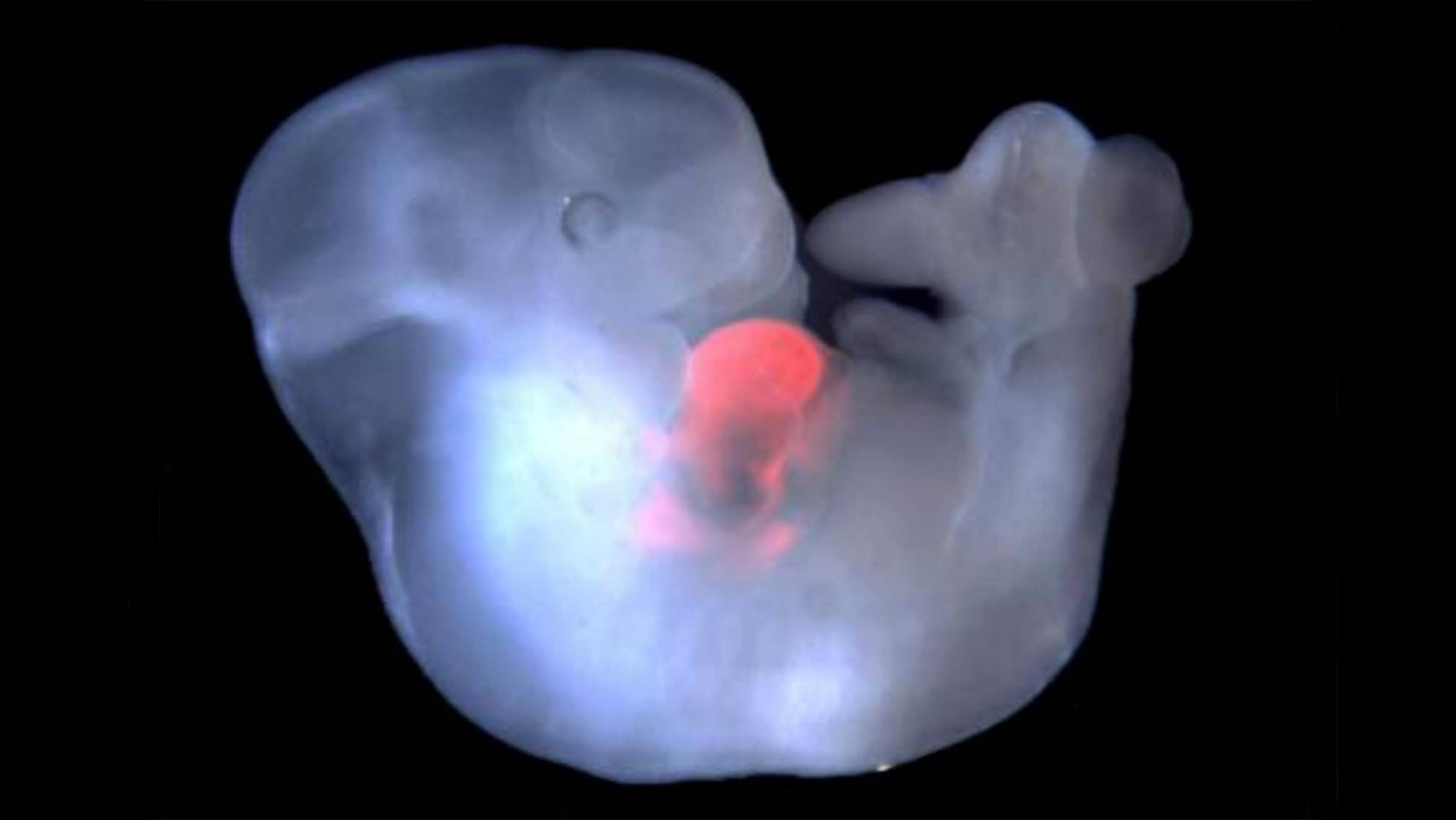
July 31 - Researchers led by Spanish scientist Juan Carlos Izpisúa have created for the first time a human-monkey hybrid in a laboratory in China – an important step towards using animals for human organ transplants.
Rejection Following Liver Transplantation in Recipients With HCV Receiving DAAs
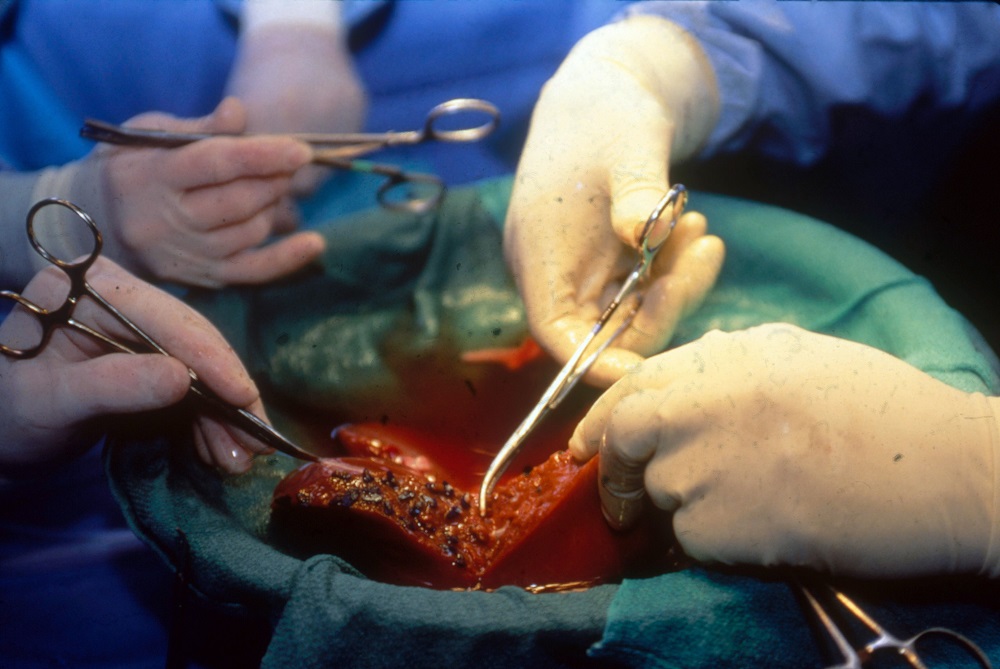
July 30 - Early acute cellular rejection (ACR) after liver transplantation in patients with hepatitis C virus (HCV) has become less common in the direct-acting antiviral (DAA) era, with lower rejection and reduced mortality after rejection, according to a retrospective data analysis published in the Journal of Hepato-Biliary-Pancreatic Sciences.
Researchers remove the need for anti-rejection drugs in transplant recipients
Aug. 3 - For decades, immunologists have been trying to train the transplant recipient's immune system to accept transplanted cells and organs without the long-term use of anti-rejection drugs. New University of Minnesota preclinical research shows that this is now possible.
Device opens doors for expanded use of donor lungs

Aug. 2 - Currently, 80 percent of donor lungs are not being used for transplant, but a portable device to house and transport lungs could make more of the organs available for patients who need them.
Stem cell combo repairs damaged hearts in rat
Aug. 5 - When people suffer heart attacks, the resulting damage to their cardiac tissue can’t be repaired, which is why stem-cell treatments that could regenerate that lost tissue have long been considered a holy grail among cardiology researchers. Problem is, transplanted stem cells tend to die within a few days of being implanted in the heart, making them largely ineffective. Scientists at the University of Cambridge in the United Kingdom and the University of Washington have come up with a potential solution to this problem.
CMS eyes sweeping regulatory changes for organ transplant system

July 30 - The CMS (U.S. Centers for Medicare & Medicaid Services) is eying a potentially massive regulatory overhaul for the two big players in organ transplants: the regional contractors that procure and distribute organs for transplant and the transplant centers themselves.
Investigators Successfully Transplant HCV-Positive Hearts
Aug. 2 - In an effort to increase the amount of donor hearts available, investigators are looking at whether hearts from hepatitis C virus (HCV) infected donors can be safely transplanted.
UPCOMING MEETINGS AND ANNOUNCEMENTS
TOND-TDTD - SAVE THE DATES - OCTOBER 10-11, 2019!
The 3rd Joint Meeting of the Turkish Transplantation Society and the Turkic World Transplantation Society will be held in Tashkent, Uzbekistan on October 10-11, 2019. The Scientific and Local Organizing Committees, comprised of international transplantation leaders, have developed a program that reflects current problems and represents a collection of scientific, educational, and practical information. The meeting will be an exciting opportunity for transplant professionals to share their expertise as well as their concerns regarding the development of the field in their own countries.
24TH ANNUAL SPLIT MEETING
SPLIT is an official section of The Transplantation Society
REGISTRATION IS NOW OPEN!
INTERNATIONAL TRANSPLANTATION SCIENCE MEETING 2019
ITS 2019 is set for Nov. 10-13 in Clearwater Beach, Florida. Keynote speakers include Katherine High, President and Head of R&D at Spark Therapeutics, and Ronald Germain, chief of Laboratory of Immune System Biology and Lymphocyte Biology Section at the National Institute of Allergy and Infectious Diseases National Institutes of Health.

ISVCA 2019 - NEW DELHI, INDIA - SAVE THE DATES - SEPTEMBER 30 - OCTOBER 1, 2019!
Contact
Address
The Transplantation Society
International Headquarters
740 Notre-Dame Ouest
Suite 1245
Montréal, QC, H3C 3X6
Canada
Используйте Вавада казино для игры с бонусом — активируйте промокод и начните выигрывать уже сегодня!

